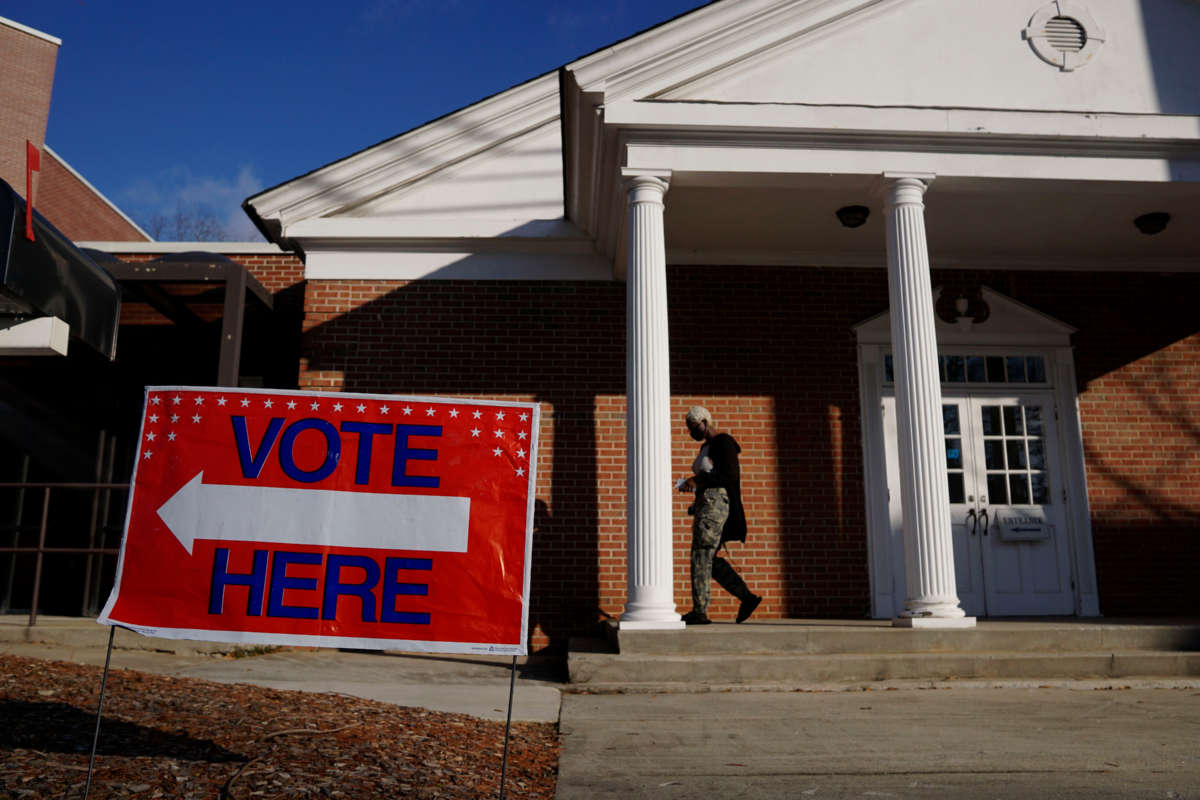Support justice-driven, accurate and transparent news — make a quick donation to Truthout today!
An elections board in a rural county in northeastern Georgia is looking to close six of its seven polling stations for next year’s elections, a move that was made possible by a controversial state law passed earlier this year.
Residents in Lincoln County, Georgia, are speaking out against the proposal. Originally intended to be voted on last week, the county board of elections lacked a quorum and postponed the vote until a later unspecified time.
Some residents have sought to postpone that vote until next month, to allow for public input to be given. At least one official said the vote will occur next week, although it’s unclear when it will happen for sure, as there has been no public notice about it.
If passed, the measure would create just one place for residents to vote in the county seat of Lincolnton, The Augusta Chronicle reported. Although Lincoln County’s population is small at just 7,690 residents, the single voting location would mean that some residents would have to travel up to 23 miles, making for a 46-mile round trip, just to vote, according to activist and former county school board member Denise Freeman.
Board members say that creating a single place to vote will make things “easier and more accessible,” adding that it will reduce the need to transport voting equipment to multiple sites in the county. But many residents aren’t sold on the idea, arguing that it’s disenfranchising and harmful to the area’s Black population, which makes up about 29 percent of the county’s total.
“This is not about convenience for the citizens,” said Freeman. “This is about control. This is about the good old boys wanting to do what they’ve always done, which is power and control.”
“The citizens are looking at the disenfranchisement of the body of the people that now have to go to a place outside of their area to vote,” said Rev. Chris Johnson, head of the Augusta Interfaith Coalition.
The proposal being considered is a result of a state law passed in Georgia this last spring, Senate Bill 202, which allows state lawmakers to dissolve county boards they view as being unfit. Local boards were dissolved in six counties across Georgia (including Lincoln) under separate bills passed by the Republican-controlled state legislature using the powers that were delegated under SB 202. The newly-formed Lincoln County board agreed with a “consolidation” plan that was offered under the legislation.
Changes to who is appointed to elections boards were also made. In Lincoln County, for example, the new law allowed for its election board to be picked entirely by the county’s Republican-led county board of commissioners. Previously, Democrats and Republicans were given equal apportionment to the election board.
Media that fights fascism
Truthout is funded almost entirely by readers — that’s why we can speak truth to power and cut against the mainstream narrative. But independent journalists at Truthout face mounting political repression under Trump.
We rely on your support to survive McCarthyist censorship. Please make a tax-deductible one-time or monthly donation.
